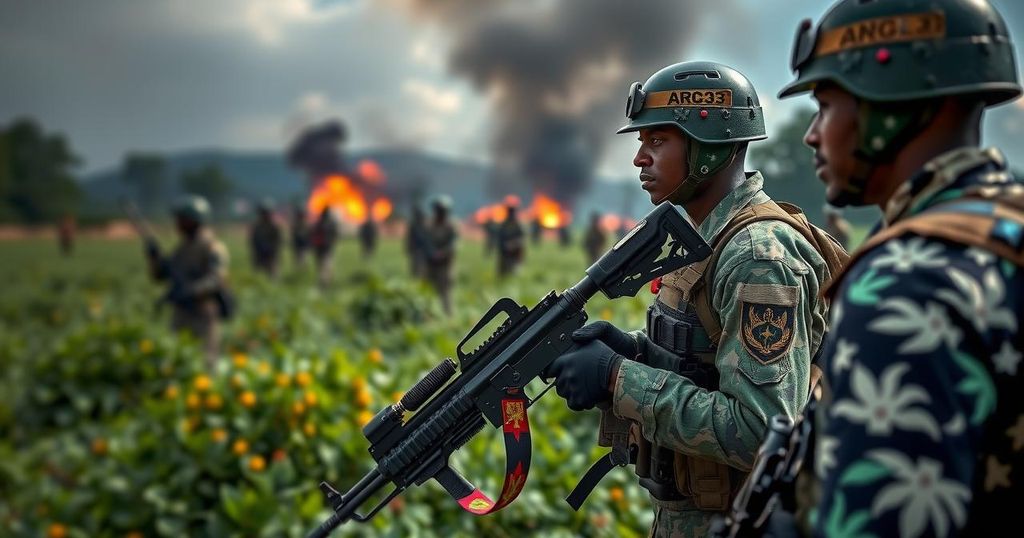Angola has accused the Rwanda-supported M23 rebels of violating a ceasefire in eastern DRC following a clash with government-aligned Wazalendo militia, resulting in the seizure of the town Kalembe. This violation poses a significant threat to ongoing peace efforts in the region.
The government of Angola has formally accused the M23 rebel group, which is backed by Rwanda, of violating a ceasefire agreement in the eastern region of the Democratic Republic of Congo (DRC). This ceasefire was established earlier in August following mediation efforts from Angola itself. However, recent hostilities erupted on Sunday between M23 fighters and the Wazalendo militia, which supports the Congolese government, resulting in the occupation of Kalembe, a town in North Kivu province. Angola’s statement, issued on Monday, characterized the seizure of Kalembe by the M23 as a “flagrant violation” of the ceasefire, condemning the action as a direct threat to peace attempts in the region. Locals reported intense fighting commencing early Sunday morning, leading to the M23’s control over Kalembe by that afternoon. While no confirmation regarding the involvement of Rwandan or Congolese forces has been made, the spokesperson for the Wazalendo asserted their control over the town, indicating that no official forces were implicated in the clashes. This declaration from the Angolan government is noteworthy, given that such events typically garner little official commentary, despite frequent clashes between M23 and militias in Kinshasa. Since the M23 resumed its offensive in late 2021, the group has captured significant territories in eastern DRC, resulting in widespread displacement and a growing humanitarian crisis. Kalembe, home to approximately 40,000 residents, is strategically situated on key transportation routes that are essential for accessing valuable mineral deposits, further complicating the endemic violence in the region, which has persisted for over three decades.
The Democratic Republic of Congo (DRC) has been embroiled in conflict involving various rebel groups for several decades, particularly in its eastern provinces. The M23, a predominantly Tutsi militia, emerged prominently in this landscape after launching an offensive in late 2021, displacing numerous residents and exacerbating humanitarian challenges. The group’s activities have often led to tensions not only within the DRC but also with neighboring countries, especially Rwanda, which has been accused of supporting M23. Efforts at establishing peace, such as the ceasefire brokered by Angola, have proven fragile, highlighting the complex dynamics of local and regional politics in this mineral-rich yet conflict-ridden area.
In summary, Angola has condemned the recent actions of the M23 rebels for breaching a ceasefire agreement, igniting further tensions in a region long plagued by violence. The occupation of Kalembe underscores the ongoing instability and the challenges to peace efforts that have resulted from the rebel group’s operations. The response from Angola reflects both a commitment to regional peace and the ongoing threat posed by armed groups for the people of the DRC.
Original Source: www.barrons.com






